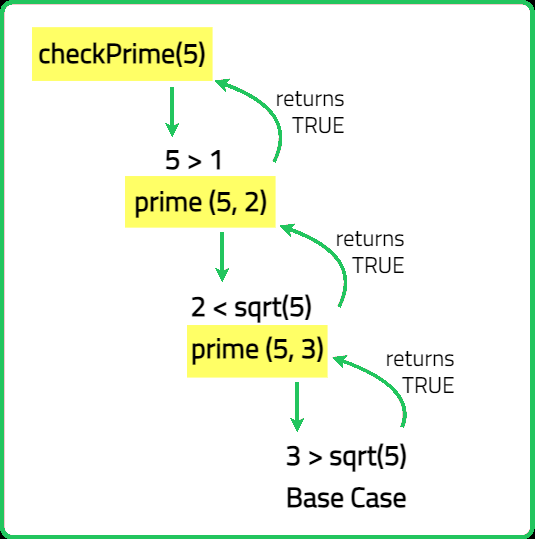Check if a number is prime or not
Beginner Problems
Basic Recursion
Easy
- Prime number checking, the underlying concept of this problem, is a crucial component in cryptography, particularly RSA algorithm, which is widely used in secure data transmission
- The security of RSA is based on the practical difficulty of factoring the product of two large prime numbers, the factoring problem
Given an integer num, return true if it is prime otherwise false.
A prime number is a number that is divisible only by 1 and itself.
Examples:
Input : num = 5
Output : true
Explanation : The factors of 5 are 1 and 5 only.
So it satisfies the prime number condition.
Input : num = 15
Output : false
Explanation : The factors of 15 are 1, 3, 5, 15 only.
As the number has factors other than 1 and itself, So it is not a prime number.
Input : num = 41
Constraints
- 1 <= num <= 104
Company Tags
TCS
Cognizant
Accenture
Infosys
Capgemini
Wipro
IBM
HCL
Tech Mahindra
MindTree
